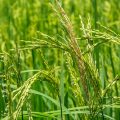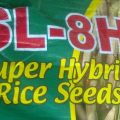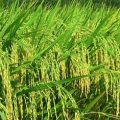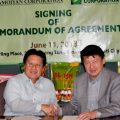The Philippines may enter into a potential bilateral agreement with Bangladesh on rice trade even as the country now helps Bangladesh grow hybrid rice to aid in its food security.
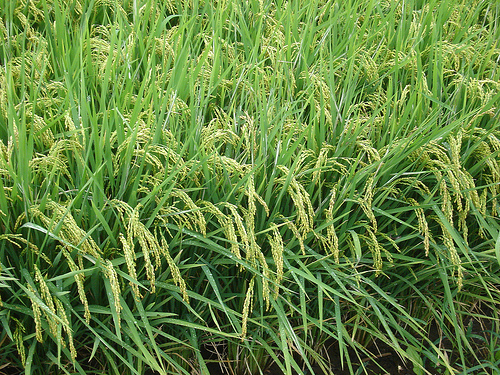
The Department of Agriculture (DA) has held a meeting with a mission from Bangladesh led by Bangladesh’s Ministry of Agriculture Minister Md Eunusur Rahman and heads of government-run Bangladesh Agricultural Development Corp. (BADC).
DA was represented by Asst. Sec Edilberto De Luna.
Bangladesh is already receiving technical assistance from the Philippines on hybrid rice growing with a target of hybrid rice AxR seed production on 1,200 hectares at the end of three years. This program is with SL Agritech Corp. (SLAC).
However, Bangladesh is further proposing to enter into a bilateral agreement with the DA to supply the country rice which the Philippines still imports at a significant volume. The National Food Authority earlier indicated importation of 600,000 million metric tons (MT) of rice for 2015. Bangladesh will give priority to supplying rice to Philippines and potentially at cheaper price.
The National Economic Development Authority (NEDA) even proposes removal of the quantitative restriction on rice which may further cause volume of imported rice to increase.
“We’re interested in an exchange of export. We just have to work on the details,” according to De Luna during the meeting.
The sustained assistance in seed production to Bangladesh is further establishing Philippines’ leadership in hybrid rice among members of the Association of South East Asian Nations or ASEAN. It may open up opportunities in light of the ASEAN integration.
“The Philippines is still importing rice, but we export our rice seeds,” according to SL Agritech Chairman Henry Lim Bon Liong.
The joint seed production in Bangladesh covers SLAC’s supply of SL1A as female parent and SL-8R as male parent to BADC.
De Luna said the bilateral agreement may also involve exchange of farmers as a training program. Five to 10 farmers may be sent by the Philippines to Bangladesh for exposure to various farm practices.
“We are not new to bilaterals and technical cooperation. We just have to work on the details,” said De Luna.
Even prior to a proposed bilateral agreement on farmers’ training, SLAC has already been assigning technical experts to oversee Bangladesh’s hybrid rice seed production. SLAC’s technical assistance involves the overseas short term training program for three officers and one contract farmer of BADC per year.
The Bangladesh mission also proposed to supply Philippines potato which is its major produce at more than $30 million export value yearly.
Bangladesh exports potato to Russia, Malaysia, Singapore, Sri Lanka, among others.
The Bangladesh delegation is also composed of Ministry of Foreign Affairs Secretary Mustafa Kamal, Parliamentary Representative Bgd. Biswas Chhabi, Ministry of Agriculture Chief Seed Technologist Azim Uddin, and BADC Farm Manager Golam Kibria.
In the same meeting, BADC signed a memorandum of agreement (MOA) for the Phase 2 of a seed production collaboration with SLAC. Signatories to the MOA are BADC Chairman Anwarul Islam Sikder and SLAC’s Lim.
The MOA covers the next five years up to July 2019. The first phase of this collaborative agreement started in 2005.
The seed production in Bangladesh was first conducted in Dattanagar Farm. The average seed yield is at 2.17 metric tons (MT) per hectare, a satisfactory yield for an AxR production – the crossing of male and female parents to produce the F1 hybrid seeds planted commercially by farmers.
“This yield is found promising in the ecological condition of Bangladesh,” according to the MOA.
The Philippines’ hybrid rice variety produced by SLAC, known to most farmers as SL-8H, has been approved by Bangladesh’s Ministry of Agriculture-National Seed Board.
The first phase covered five years from July 2009 to July 2014.
Under the MOA, SLAC will supply the parental lines of SL8H to BADC at the right time for seed production. BADC is not authorized to conduct the AxR seed production singly.
. SLAC remains to have exclusive ownership of the variety SL-8H and its parental lines.
SLAC is also supplying needed commodities in seed production including gibberelic acid, while BADC provides the production area, labor expense, material inputs like fertilizers and pesticides, harvest and post harvest provisions, financing for the production, transport facility for the working station, and budget for administrative expense.
###
For any questions or interview requests, please contact 0999-573-7077 or 0917-671-1596.
